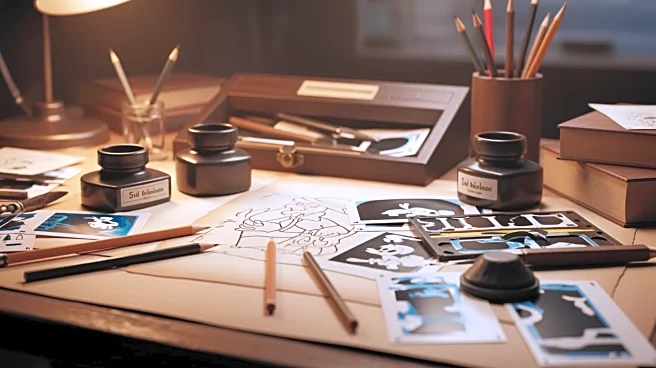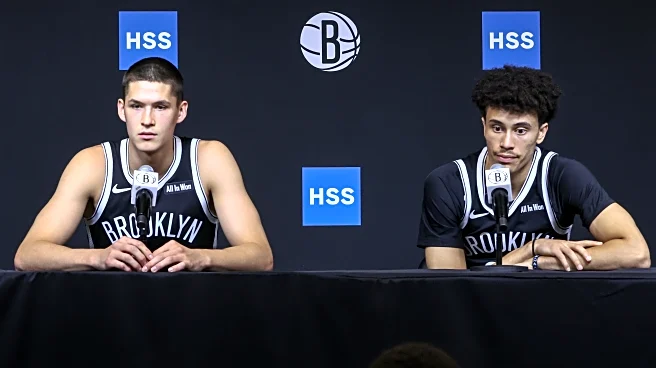What's Happening?
Amy Poehler returned to Saturday Night Live, portraying Attorney General Pam Bondi in a comedic sketch that parodied Bondi's recent Senate testimony. The sketch opened with Poehler's Bondi expressing frustration at being called back for questioning, humorously refusing to answer questions truthfully. The satire highlighted Bondi's evasive responses during her actual Senate hearing, where she often deflected questions or attacked the senators. The sketch also featured Tina Fey as Homeland Security Director Kristi Noem, who entered the scene with exaggerated props, playing up her 'Ice Barbie' persona. The reunion of Poehler and Fey, both SNL veterans, was met with applause from the audience, showcasing their comedic chemistry and ability to tackle political satire.
Why It's Important?
The SNL sketch underscores the role of satire in political discourse, using humor to critique and highlight the behavior of public officials. By parodying Pam Bondi's Senate testimony, the show draws attention to the contentious nature of political hearings and the tactics used by officials to avoid direct answers. This type of satire can influence public perception, encouraging viewers to question the transparency and accountability of political figures. Additionally, the portrayal of Kristi Noem by Tina Fey adds another layer of commentary on the public image and actions of government officials, potentially impacting how audiences view these figures.
What's Next?
The sketch may prompt reactions from the public and the officials involved, as satire often sparks discussions about the accuracy and fairness of its portrayals. Pam Bondi and Kristi Noem might respond to the depiction, either dismissing it as mere comedy or addressing the criticisms indirectly. SNL's continued use of political satire could influence future sketches, potentially focusing on other political figures and events, maintaining its role as a platform for social and political commentary.
Beyond the Headlines
The use of satire in media like SNL can contribute to broader cultural conversations about the effectiveness and ethics of political communication. By exaggerating the behaviors of public officials, such sketches encourage viewers to critically assess the information presented by these figures. This can lead to increased public demand for transparency and accountability, influencing how politicians engage with the media and the public. Furthermore, the comedic portrayal of serious political events highlights the intersection of entertainment and politics, reflecting society's need to process complex issues through humor.










